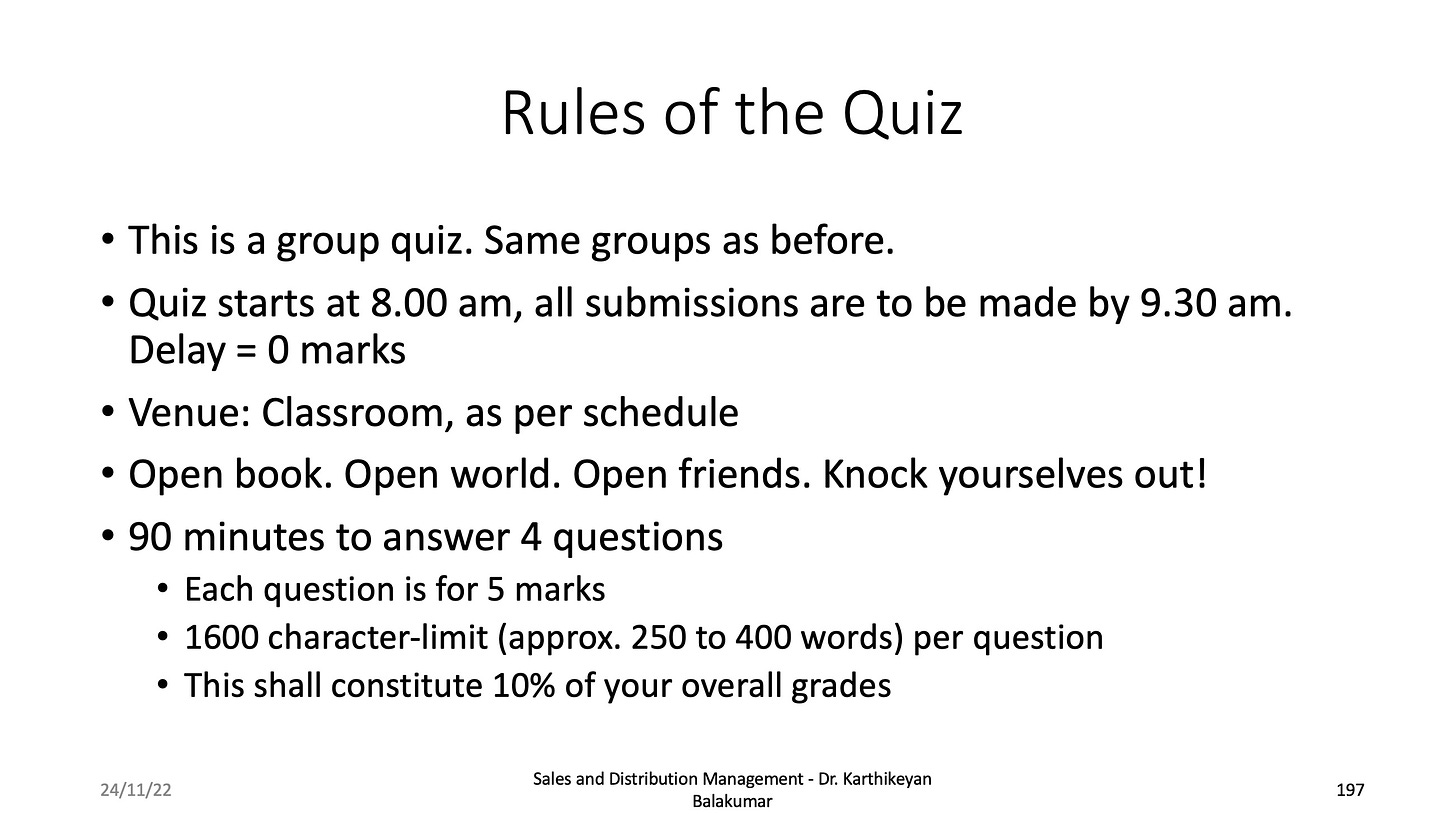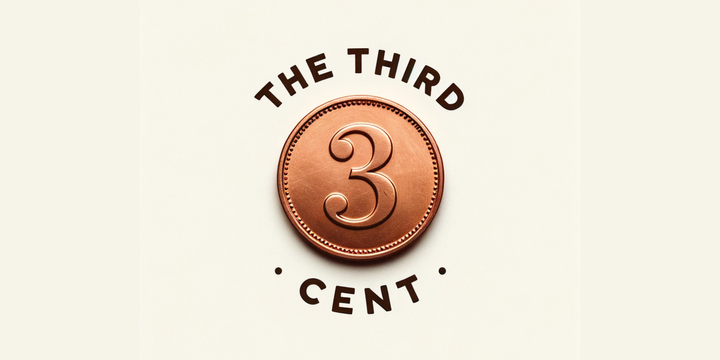The 8 am surprise

Today was one of those days when my fingers ached to type for some reason. So, I just decided to. The great thing about today is, it had in store for me many new experiences too. So, unlike other write-ups in this newsletter series, this one is just going to talk about something nice that happened today.
I’ve already told this is in class, I think. There are some pieces of writing that really stick with you and change the way you think about the world. You can think of them like scars, but good ones. I can’t think of a word that precisely means that in English.
In his book Steal Like an Artist, Aston Kleon says exactly what the title tells us. He tells us to steal like well, an Artist. Academics also steal. We are somewhat like artists in that regard. When we see someone teach in a manner better than us, we steal that. There are journals like the Journal of Marketing Education and the Journal of Statistics Education that basically promote the theft of ideas. When there is a technique that some researcher has used in his paper and we really think it helps us tell a story with our own data, we steal that too. There are tons of ‘ideas worth spreading’ (sorry Chris Anderson!). Last week, I was introduced to an idea that I really wanted to steal by a senior colleague of mine. She told me about how she used to use ‘group exams’ and how they really got the best learning outcomes for her classes. This got me thinking about the multitudes of way I could copy that. After letting the idea vegetate in my mind for some time, I thought I figured out just the right way to do it. Instead of just copying the idea, I felt I could improve it further and take it to the next level. I wanted to test it out in my Sales and Distribution class.
You’re already familiar with how students do not come prepared for cases. This is not a problem that’s exclusive to B Schools in India. This is an international phenomenon. In fact, Gary King in his GOV2001 course (which is freely available on YouTube if you are interested) also does a little rant about the same problem at MIT. Interesting side story – this actually got him thinking and he ended up creating Perusall – an online collaborative annotation tool for instructors and students. My solution was to have a case based group exam that would have people read and think about the case , and then do a case discussion (on the same case) in the next class. Today was when I implemented Phase one of that that idea. Phase one is the part where I do the group exam. After giving students sufficient notice to read, I gave them the following rules of engagement yesterday. The action was to occur at 8.00 am today. I planned to set up the quiz using google forms.

I was really excited to wake up this morning. I woke up before the alarm, turned it off, and went to class. I was happy to see that over 50 students were already in the class by the time I arrived. Some reading, some prepping their computers, some trying to find out where the rest of their teammates were. At the stroke of 8.00, I put my house outside the class through the door and checked on the corridor for any late comers. There was one, who I asked to ‘run, run, run’. I bolted the door and clicked on ‘send form’ to the class’ group email. Everyone was super quiet for some time. Very soon there was a mild, undecipherable discussion forum that unfolded itself within the classroom. I was happy to see everyone so busy with their laptops and other screens. Little did I know at that time that this exam would eventually become my Kobayashi Maru. For the uninitiated (into Star Trek), the Kobayashi Maru is exam where everyone fails (at saving a starship that’s under enemy attack). Watch the following clip for more info on that.
The motive of the exam is to find out how one deals with failure and handles himself during such times. It was when I turned around that I realised the new test that I had accidentally created. (Maybe I should call it the Karthikeya Maru from now on). Some of my students were outside the class. Turns out, they were at least one minute late, and they fell on the other side of the bolted door. It was 20 minutes since the quiz had started and they were still there. The lesson – they did not give up. They were my Captain Kirk, sans the swagger, but with the cutest faces that could melt hearts. I decided to open the door and listen to their version of the story. That’s when it happened – In addition to having stayed back, there was one student who was found sitting on the corridor and attempting to answer the questions on his laptop device. That was the highlight of my day. That student knew very well that I was going to grade all latecomers 0, and yet, he tried to answer the quiz. I think that spirit what makes a great salesman. I am not sure why he did it. I never wanted to ask, and I will never ask in the future too. But I wanted to document it. I also thought it may be a good idea to share it, especially in these trying times.
After the exam was over, I left the class with a smile like always. For some reason, Rudyard Kipling’s words came to my mind. “If you can fill the unforgiving minute with sixty seconds’ worth of distance run”, one would be “a man”. I just said to myself, not just any man, a great Salesman.



